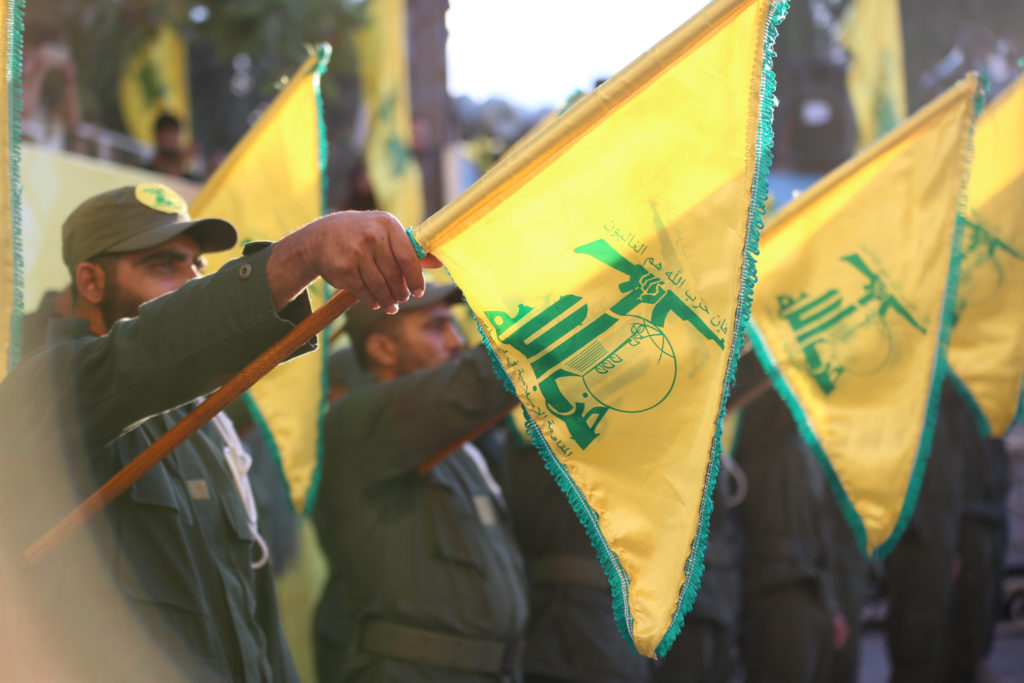FRESH AIR
German experience can inform Australia’s next move on Hezbollah
June 30, 2021 | Naomi Levin

In the year following the German Government’s decision to ban all Hezbollah activities and designate the group as a terrorist organisation, what have German authorities observed about Hezbollah’s ongoing presence in that country?
Thanks to information provided to the Bundestag, we now know. Most significantly, German authorities have noticed a decline in public support for Hezbollah.
This information could prove significant for the Australian Government, which is under pressure from MPs across the political spectrum to follow Germany and designate the entirety of Hezbollah as a terrorist organisation.
Hezbollah is an Iranian-backed, Lebanon-based Shi’ite organisation that has carried out murderous terrorist attacks in the Middle East, South America and Europe, and attempted to perpetrate attacks in Asia. It is sworn to the destruction of Israel and has targeted and inflicted Jewish communities with terrorism.
The Morrison Government has faced increased pressure in recent weeks to review Australia’s stance on Hezbollah, following a monumental report by the Parliamentary Joint Standing Committee on Intelligence and Security (PJCIS). That report recommended that Minister for Home Affairs Karen Andrews consider expanding Australia’s designation of Hezbollah’s External Security Organisation (ESO) to the entirety of the organisation, following compelling evidence that Hezbollah operates as a unitary body and that such a shift might assist Australian law enforcement without damaging Australia’s bilateral relationship with Lebanon.
In the months after Germany took decisive action against Hezbollah in April 2020, members of the German libertarian Free Democratic Party and the Alliance 90/Greens coalition separately requested more information about the ramification of Germany’s decision in April 2020.
The published responses to these questions reveal that:
- Since the ban, there has been a noticeable decline in public support for Hezbollah in Germany, including a reduction in public expressions of sympathy for the group by German individuals and associations.
- The ban on Hezbollah has had no effect on Germany’s relationship with Lebanon in development, foreign or security policy.
- Hezbollah continues to have a presence in Germany, despite the ban, in mosques and some community groups. According to the German Government, there has been no fundamental restructuring of Hezbollah in Germany following the ban – “As before, the supporters of Hezbollah in Germany maintain organisational and ideological cohesion, among other things, in local mosque associations, which are financed primarily from donations.”
- Germany counts 1050 individuals as Hezbollah affiliates, according to the responses. While a media article quoted a German intelligence report that the number of Hezbollah affiliates in German had increased to 1250 in 2020 despite the ban, AIJAC is unable to verify this number as the intelligence report in no longer available to the public.
- The risk of an attack by Hezbollah on German soil remains low because Hezbollah perceives Germany as a safe haven, meaning Hezbollah would not want to risk a further crackdown on its operations.
The German MPs who posed these questions also noted that due to inconsistencies in the way European Union member states treat Hezbollah – the EU has only designated Hezbollah’s Military Wing, but some member states, including Germany, Slovenia, the Netherlands, and Austria, have banned the entire organisation – there is a risk that Hezbollah militants could remain active across the continent.
The German Government responded: “The Federal Government is in regular talks with all EU partners on the subject of the EU-wide classification of the entire Hezbollah as a terrorist organisation. Such a decision requires consensus, which is not currently emerging.”
One of the many compelling arguments for the Australian Government to extend its proscription to the entirety of Hezbollah is to avoid Australia becoming a safe haven for Hezbollah’s criminal or terrorist activities, as other jurisdictions move to ban the group.
There is no timeline in place for the Australian Government to consider the PJCIS’ recommendation on Hezbollah. However, the committee has requested that the Department of Home Affairs and other relevant agencies provide classified feedback on their considerations about moving to proscribe all of Hezbollah, preferably within three months. The German experience should certainly be considered by the Department as it prepares any such feedback.
RELATED ARTICLES

US Middle East strategy amid regional instability: Dana Stroul at the Sydney Institute

Antisemitism in Australia after the Bondi Massacre: Arsen Ostrovsky at the Sydney Institute





















